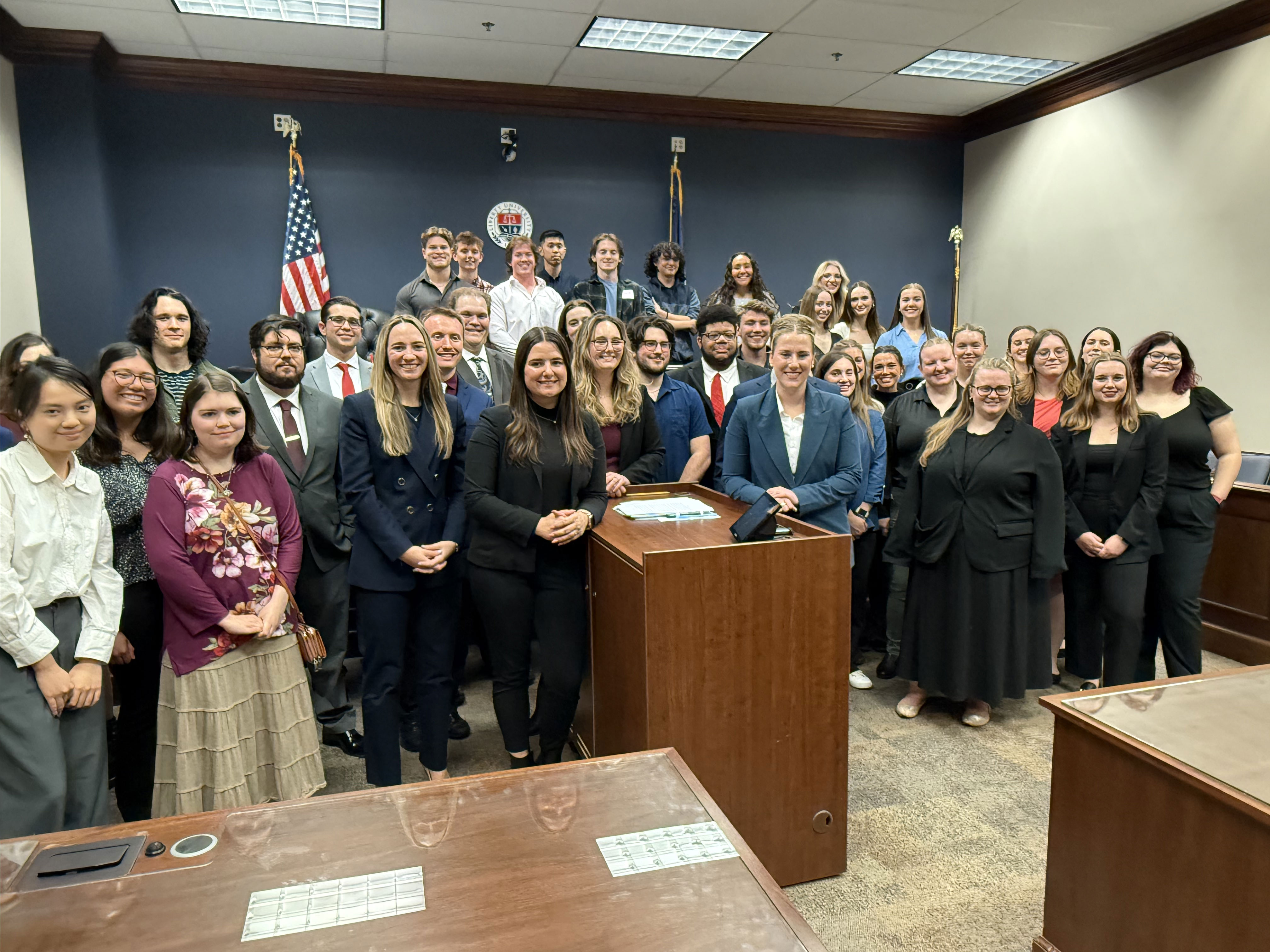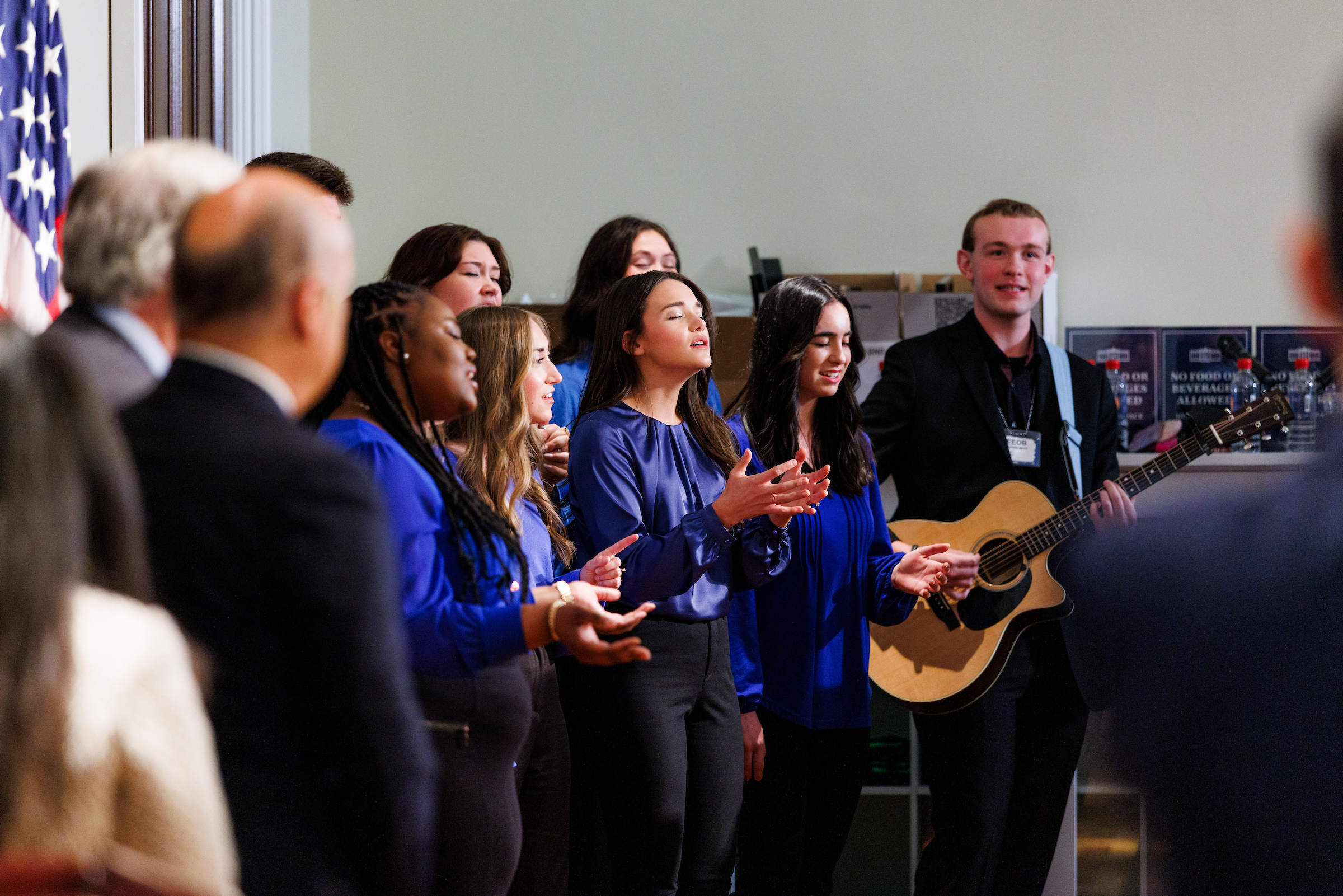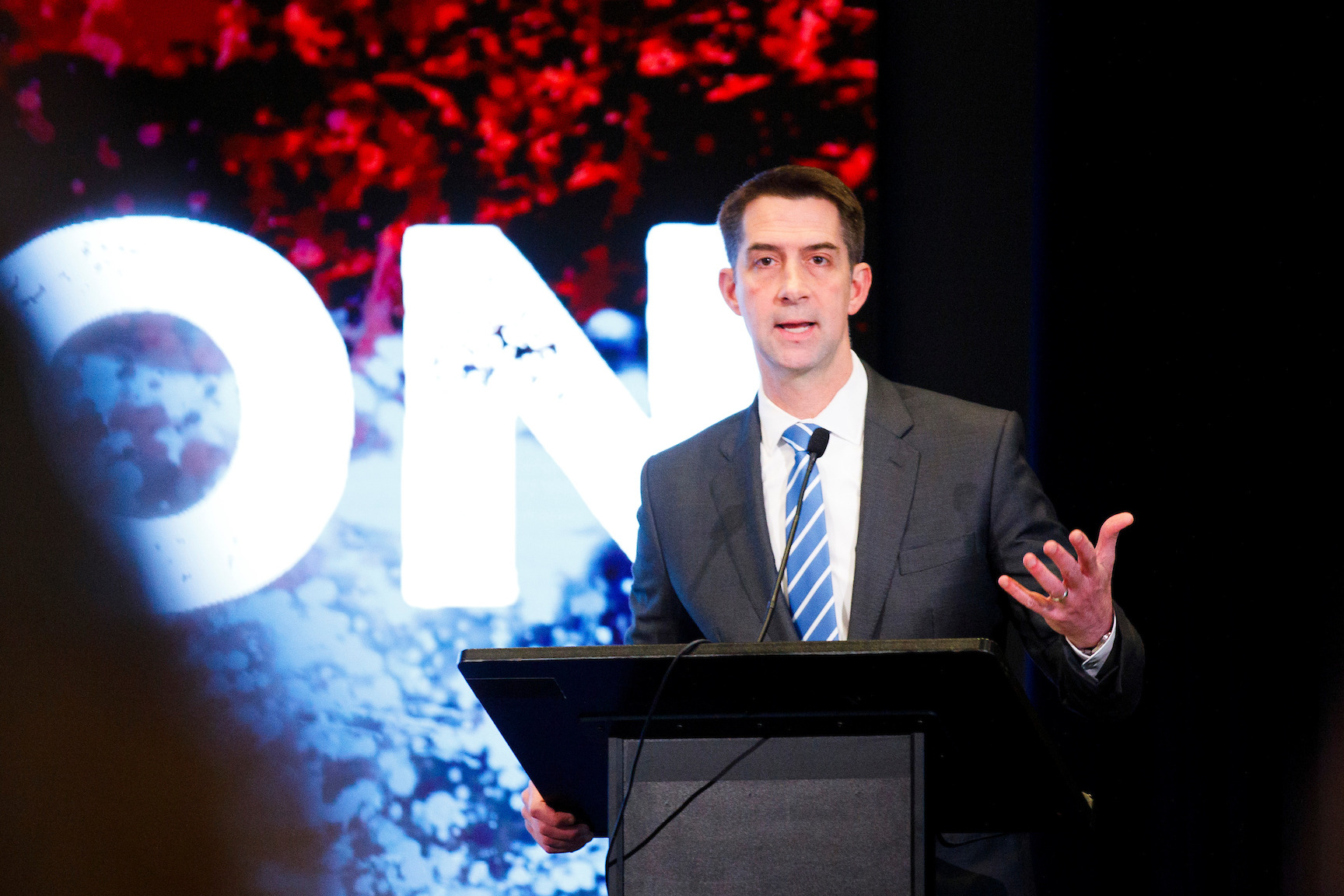Search News Archives
Filter News Articles
Additional Navigation
Equity for Africa summit results in increased cooperation, support, and aid from American businesses; second event planned for the fall
April 22, 2021 : By Logan Smith - Office of Communications & Public Engagement
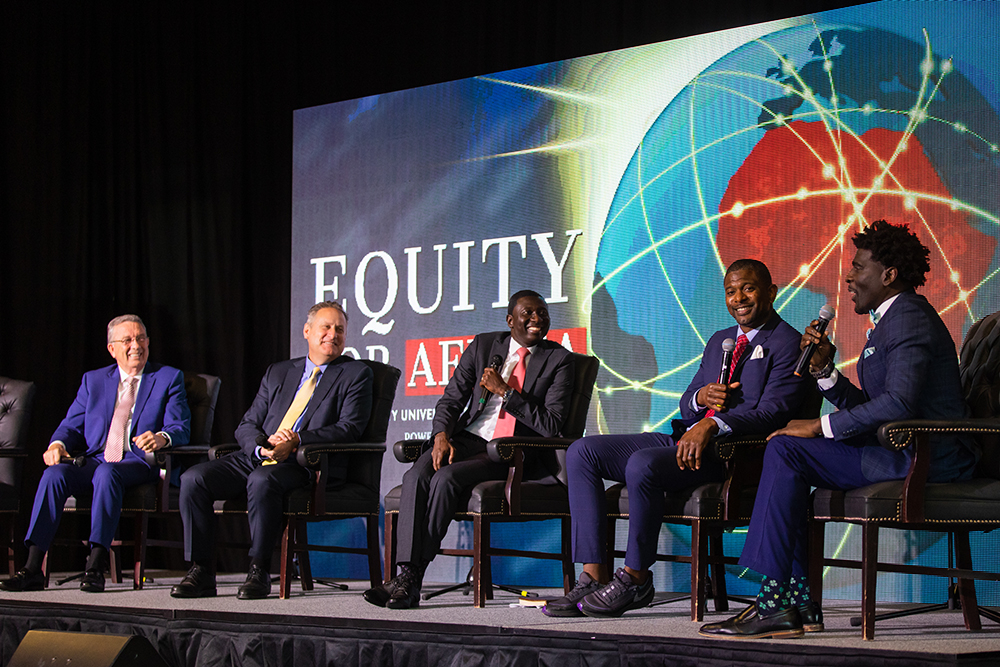
Liberty University’s School of Business, in partnership with the Standing for Freedom Center, organized and implemented one of the most groundbreaking summits in school history April 13-15, bringing in top government and business trailblazers from across Africa to discuss ways to orchestrate and deliver Judeo-Christian foundational change for all economies involved. Plans for a second Equity for Africa summit are already in the works for late September.
These African leaders, either attending in person or through videoconferencing, included the vice president of Nigeria, president of Ghana, former president of Malawi, vice president of Liberia, and other political and economic heads of state. Members of the Congo parliament, the governor of South Sudan, and an ambassador to Rwanda also participated. Many other countries wanted to attend, but like South Africa, were prevented by absolute Covid shutdowns.
American leaders included CEO of Hobby Lobby Steve Green, former Secretary of State Mike Pompeo, former Secretary of Defense Christopher Miller, former NFL star and business entrepreneur Jack Brewer, former NASA Director, Jim Bridenstine, World Bank Director Erik Bethel; Marc Short, former Chief of Staff for Vice President Mike Pence; and Congressman Ted Yoho, among others.

“This event was a herculean effort, and our whole team was blown away by what we saw,” said Dr. Dave Brat, dean of the School of Business and former U.S. Congressman. “The Bible says feed the poor. The only thing that feeds the poor in the millions is broad based economic growth, and the major cause of economic growth is capital accumulation. … The goal of this Summit was to direct capital investments to Africa.”
Within a week, many are holding business meetings to make those connections happen.
The summit included 20 panels that tackled a wide range of economic subjects — how countries can structure deals and implement goodwill diplomacy, emerging technologies impacting developing countries, and how to end expropriation. African leadership also pitched economic opportunities within their countries, and American business leaders responded with possible solutions. Both days kicked off with Faith Factor events which brought all nations together in shared faith, worship, and friendship.
“The warmth and Christian effulgence that welcomed us was so apparent,” said African business leader Bola Olawale. “It did set the pace for us as to what we should expect in the summit. We were not disappointed. Such great and fluid organization, courteous and friendly ushers and of course a very interactive group of students who are set to change and rule the world for our Lord. This hospitality made this visionary summit a privilege to have been a part of.”
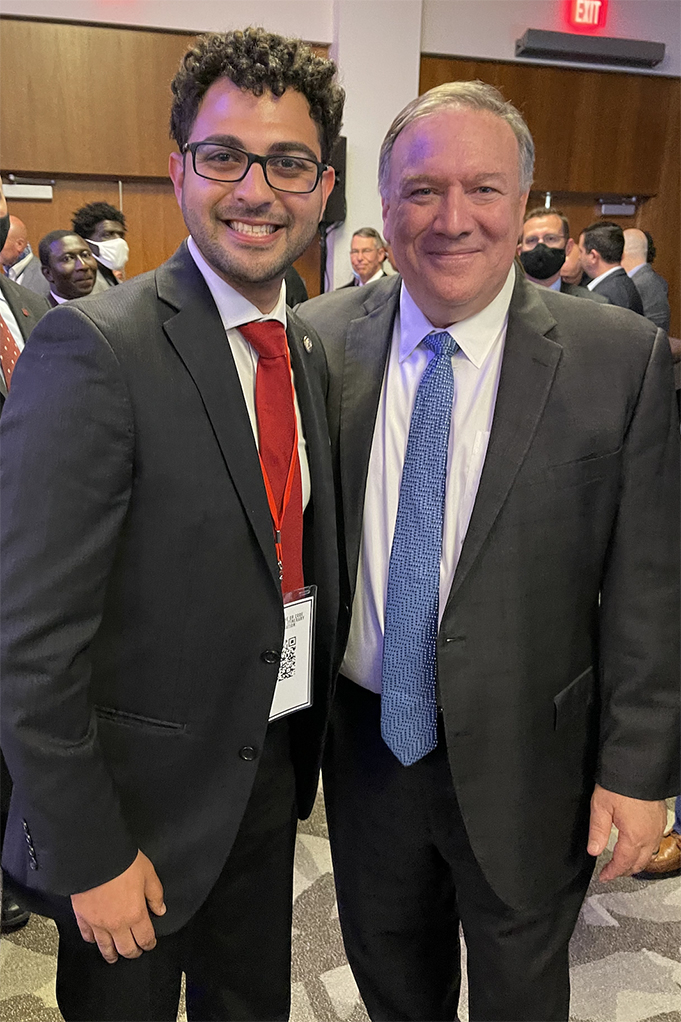
Pompeo delivered the keynote address to kick off the event, focusing on religious liberty and the need for Christ-centered principles in Africa’s economic growth.
Event attendee Shaddi Spencer, a recent public policy master’s graduate, met Pompeo following his speech.
“As an advocate for the persecuted church, it was an honor meeting the person who selflessly fights and stands for the same reason I am alive today — religious freedom,” said Spencer, who is also an editor-in-chief for the Helms School of Government’s Journal of Statesmanship and Public Policy, a peer-reviewed academic journal.
The summit’s success has prompted plans for a second Africa-themed summit later this year.
“This might be my first time at Liberty, but it definitely won’t be my last,” said Nigerian public speaker and trainer Abiodun Fijabi. “This is the place to be, and these are people to identify with. They must represent some of the best of America — obviously some of the best I have met in my more than 50 visits to the USA.”
Olukayode Azeez, who works in construction, oil and gas, and supply chain management in Nigeria, said the faith portion of the summit struck an emotional chord.
“The hospitality shown to me was so warming that I placed my hands on the ground praying that my children should attend such a school founded on Christian principles,” Azeez said. “I look forward to visiting again.”
Brat extended his thanks to School of Business administrators Christy Murphy, Tiffany Towne, and Alene Stallman for their organizational efforts, and to co-host Pastor Forson Swanzy for his bold faith leadership in building up the panels. Brat also commended Liberty’s Standing for Freedom Center for supporting the event and its approach to getting things done for the Kingdom.

“This Africa summit is the perfect example of what it means to be a think tank, and more importantly an action think tank,” Brat said of the Center. “It’s not just a white paper on a shelf. We are taking action in the real world using the most brilliant minds and the deepest faith and the boldest leadership in the world.”
One of those brilliant minds was Vice President of Nigeria Yemi Osinbajo, who tweeted about his experience at the summit. Speaking remotely from Nigeria, he took part in a panel outlining the economic potential in his country.
“I also thank you for this specific opportunity to see how business opportunities and investments can be made in Africa and in my case, in Nigeria,” he said during his panel. “First, I would like to say also the theme, Equity for Africa: Transforming the World through Judeo-Christian Values, is insightful for two broader reasons; first is that there’s a need to apply Christian values in domestic policy and sovereign actions at the international level and at the domestic level. …”
